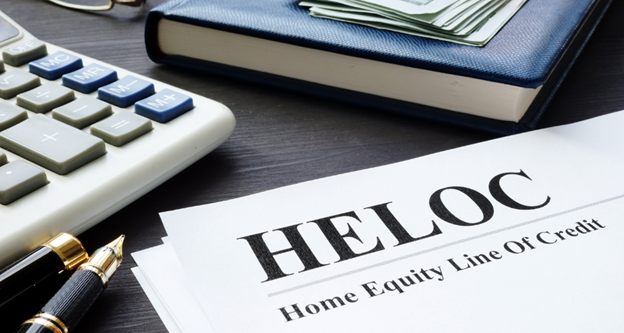Understanding the Mechanics of a HELOC Loan

For many homeowners, a Home Equity Line of Credit (HELOC) can be an attractive financial tool, offering a flexible way to access funds while leveraging their property’s equity. A HELOC works differently from a traditional home loan or mortgage, providing borrowers with a revolving credit line that they can draw from as needed.
What is a HELOC?
A Home Equity Line of Credit is a type of loan that allows homeowners to borrow against the equity they have built in their property. Equity is the difference between the home’s current market value and the outstanding mortgage balance. HELOCs are typically offered by banks, credit unions, and other financial institutions and are often regarded as a “second mortgage.”
How does a HELOC work?
A HELOC operates like a credit card or a checking account with a pre-approved limit. When you apply for a HELOC, the lender assesses your creditworthiness and the amount of equity you have in your home to determine your credit limit. This limit is typically a percentage of the home’s appraised value, minus any existing mortgage.
Once approved, borrowers can access the funds as needed during the “draw period,” which typically lasts around 5 to 10 years. During this time, you can borrow and repay the funds multiple times, just like using a credit card. You only pay interest on the amount you have withdrawn.
Interest Rates and Repayment
HELOCs usually have variable interest rates, which means that the rate can fluctuate with changes in the market index. The interest rates are generally lower than those of credit cards and other unsecured loans, making a HELOC an appealing option for consolidating higher-interest debts or funding significant expenses, such as home renovations or educational costs.
During the draw period, borrowers are usually required to make interest-only payments each month. However, some lenders may allow borrowers to make both principal and interest payments. During this phase, borrowers can no longer withdraw funds and must repay both principal and interest, often leading to higher monthly payments.
Advantages of a HELOC
Flexibility: Borrowers have the freedom to use the funds for various purposes, from home improvements and debt consolidation to emergency expenses and educational costs.
Lower interest rates: Compared to other forms of credit, HELOCs often offer more favorable interest rates, making it a cost-effective financing option for eligible homeowners.
Tax benefits: In some cases, the interest paid on a HELOC may be tax-deductible, but it’s essential to consult a tax advisor to understand the specifics of your situation.
A Home Equity Line of Credit can be an excellent way for homeowners to access funds for various financial needs. By understanding how a HELOC works, its benefits, and potential risks, borrowers can make informed decisions about whether it suits their financial goals and circumstances.
Responsible use, careful planning, and regular review of your financial situation are essential to make the most of this powerful financial tool and avoid potential pitfalls. As always, it’s advisable to seek professional financial advice before making any major financial decisions.

 Deciding whether to buy or build a house can be a complex decision that depends on several factors. Here are some pros and cons to consider:
Deciding whether to buy or build a house can be a complex decision that depends on several factors. Here are some pros and cons to consider: Buying a house is one of the most significant financial decisions in one’s life, and it’s essential to make smart choices to save money during the process. While purchasing a home can be expensive, there are several strategies you can implement to maximize your savings and make the most of your investment.
Buying a house is one of the most significant financial decisions in one’s life, and it’s essential to make smart choices to save money during the process. While purchasing a home can be expensive, there are several strategies you can implement to maximize your savings and make the most of your investment.